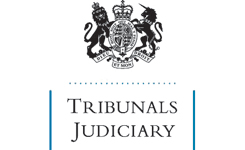|
Notes:
|
Assessment of disablement - aggregation - whether tribunal entitled to award aggregation for any period prior to the date of decision in the case which is the "relevant determination" under section 27 of the Social Security Act 1998
During the course of their working lives, both claimants had suffered more than one industrial accident or prescribed disease. Prior to October 1986, compensation for disablements assessed at less than 20% (the then threshold for entitlement to disablement benefit in the form of a pension) was by way of separate lump sum payments for each such disablement; and both claimants had received one or more such "disablement gratuities". In each case, there had also been a final assessment of continuing disablement for life. With effect from October 1986, lump sum disablement gratuities were abolished. A system of "aggregation" for less serious injury or disease was introduced, whereby, in order to qualify for disablement benefit, the assessment of disablement (which could be aggregated to include separate assessments of different disablements) had to reach the threshold of 14%, at which point entitlement to a disablement pension was triggered. Also enacted were provisions intended to prevent claimants using the new aggregation system to obtain further benefit for disablements in respect of which lump sum gratuities had already been paid. The original departmental understanding of those provisions was that disablement percentages for which a gratuity had been paid on a final assessment were at all times thereafter excluded from aggregation in any calculation of the percentage for a disablement pension on any further assessment made from October 1986 onwards. Such understanding was applied (to the claimants and others) consistently from 1986 onwards. However, there followed thereafter a series of Commissioners' cases in which it was held that past gratuity percentages did in fact fall to be included in later aggregation decisions. The decision in the first such case (CI/522/1993) was given on 24 July 1995. In due course, both claimants applied for earlier decisions refusing or limiting aggregation in their cases to be considered again, and, in both cases, the Secretary of State reopened the aggregation question. Fresh decisions were issued, adding in the previously omitted percentages and making (increased) awards of disablement pension accordingly. In each case, the Secretary of State considered that section 27 of the Social Security Act 1998 (the "test case rule") applied and, that being so, the backwards effect of each new decision was fixed at 24 July 1995 (the date of decision in CI/522/1993). In the opinion of the Secretary of State such result was determined by the provisions of subsections (1) and (3) of section 27. Under section 27(1)(b) the decision in CI/522/1993 was to be regarded as the "relevant determination" in which the previous practice of the Secretary of State on the aggregation issue had first been held erroneous in law, while the terms of section 27(3) ruled out entitlement to benefit in respect of a period before the date of the relevant determination. Each claimant made a successful appeal to a tribunal against the refusal to make a retrospective award of benefit even further back before 24 July 1995. The Secretary of State appealed to the Commissioner. The two cases were directed to be set down for hearing before a Tribunal of Commissioners under section 16(7) of the 1998 Act as involving questions of law of special difficulty.
Held, allowing the appeals and confirming that the effect of the Secretary of State's fresh decisions was limited to the period from 24 July 1995, that:
1. the fresh decisions were governed by the test case rule, since it had been the giving of the decision in CI/522/1993 and later cases to the same effect that had caused them to be applied for and made, and the ground for doing so was that the earlier refusal of aggregation on post-1986 assessments had been shown to be erroneous in law (paragraphs 10 and 33);
2. the only relevant provision under which those fresh decisions could be given any effect for any period before they were applied for or given was regulation 7(6) of the Social Security and Child Support (Decisions and Appeals) Regulations 1999, by which a decision superseding an earlier one under section 10 of the 1998 Act in consequence of a "relevant determination" within section 27 is to take effect as from the date of that determination (paragraphs 28 and 29);
3. for this purpose the earliest "relevant determination" was that in CI/522/1993, since that was the first case in which the issue of aggregation on which these cases depended was determined judicially by a Commissioner on appeal (paragraph 35);
4. consequently each tribunal had misdirected itself in purporting to award benefit or direct aggregation for any period before that decision was given on 24 July 1995 (ibid).
Per curiam: the use of skeleton arguments has been found of assistance in this jurisdiction, and when directed, they must be provided. |
